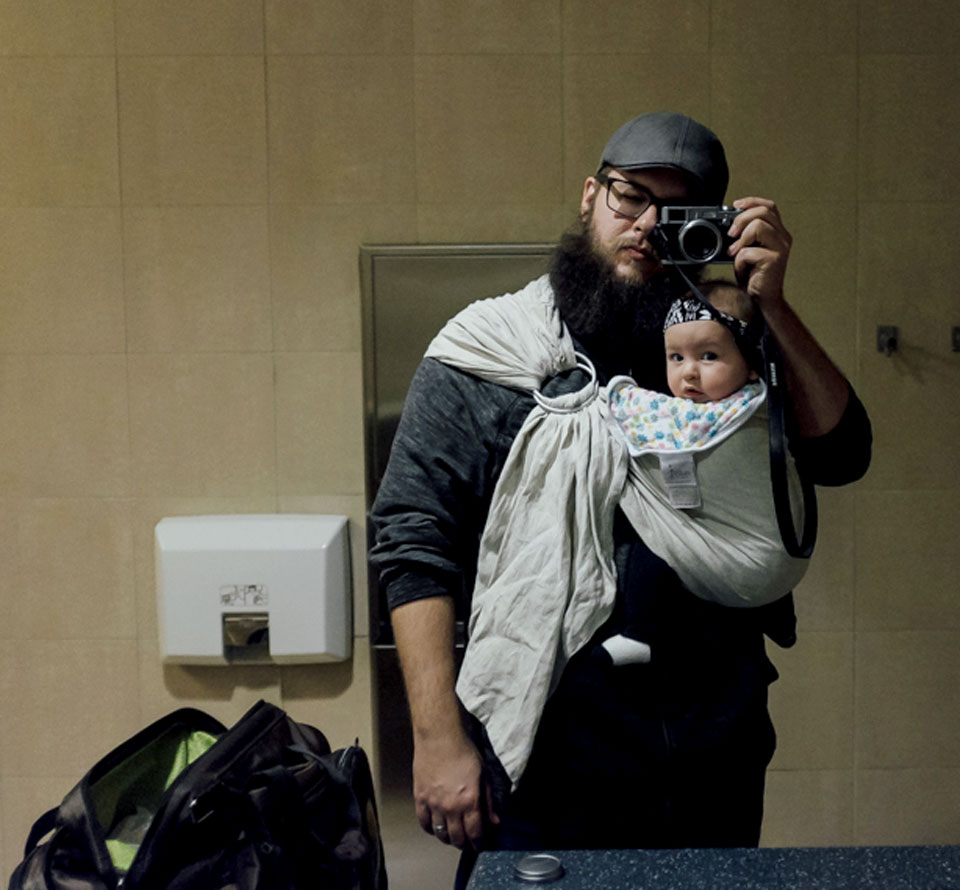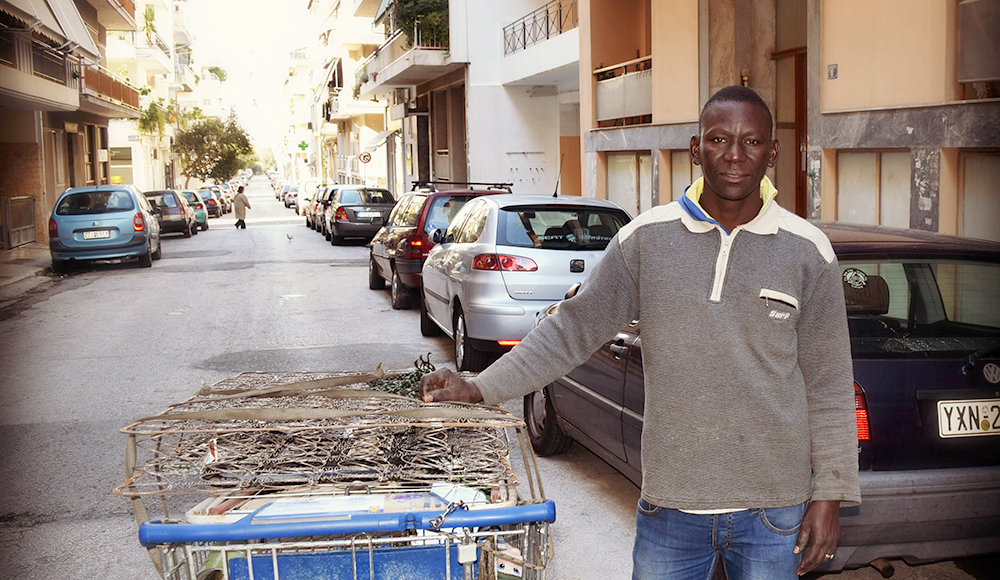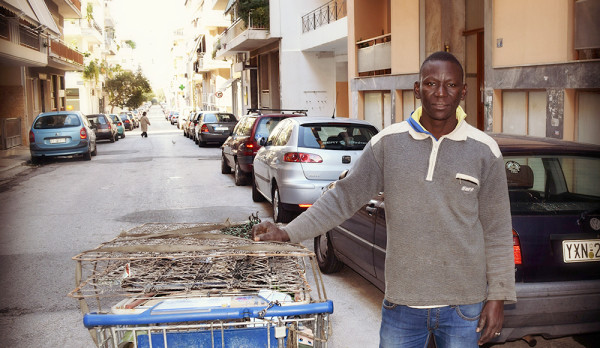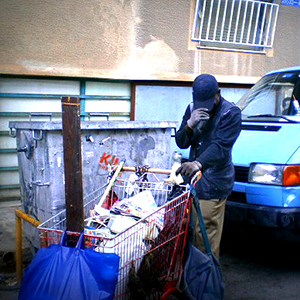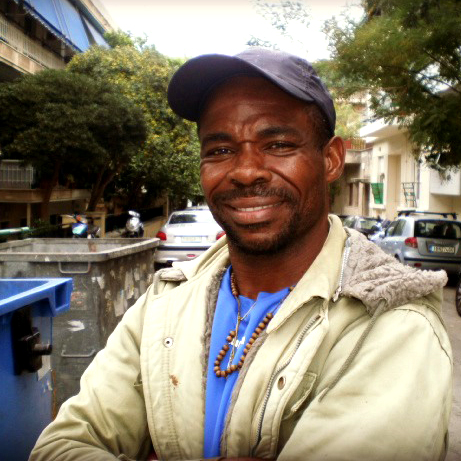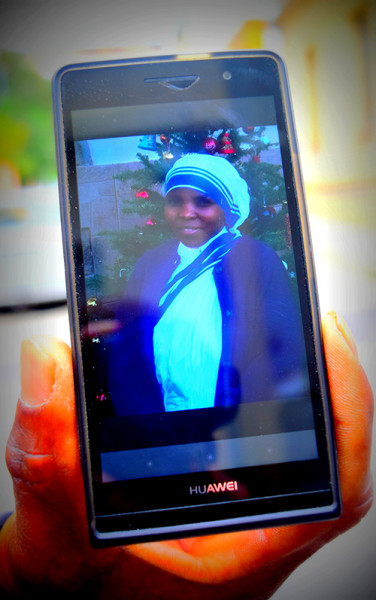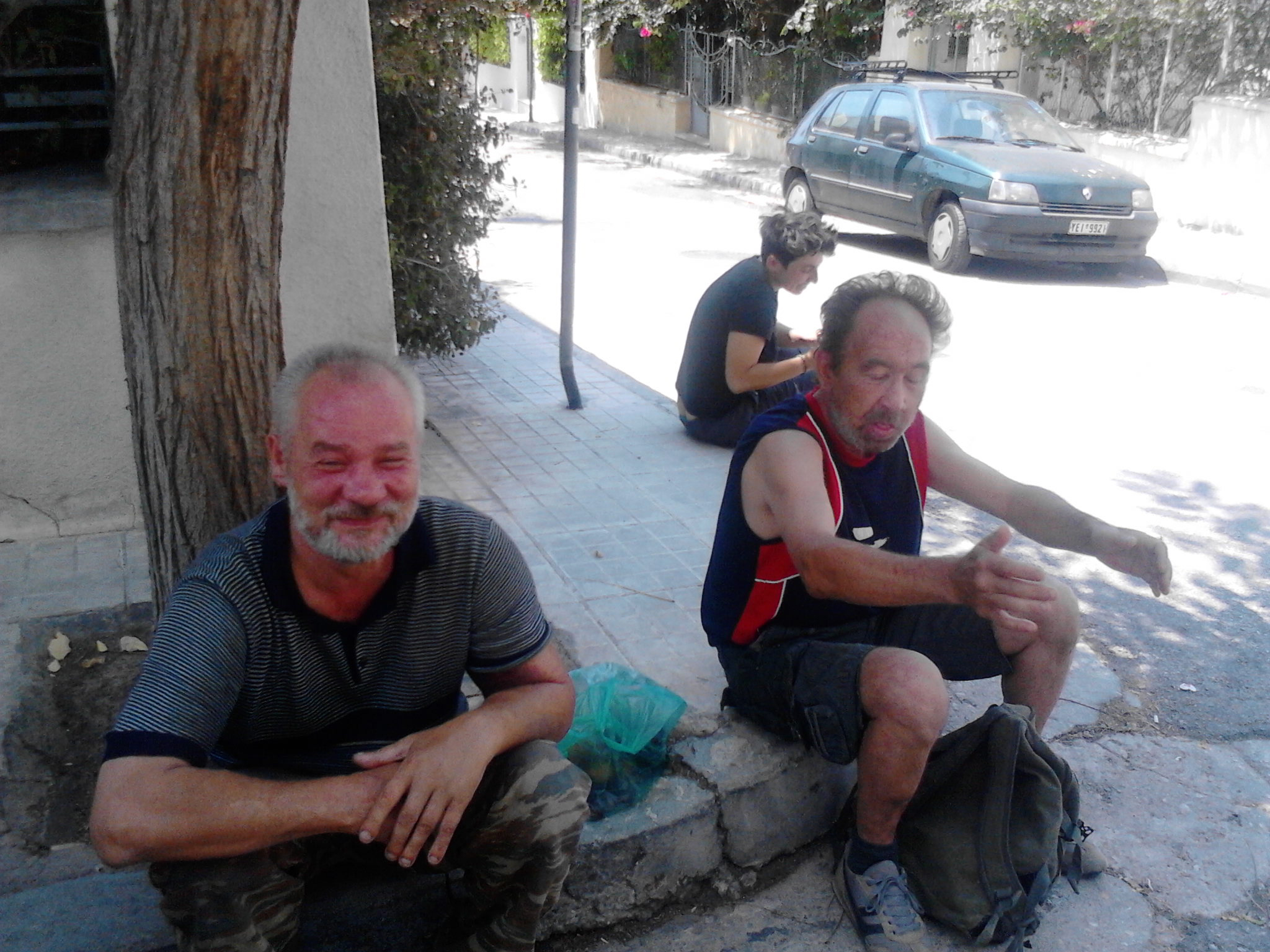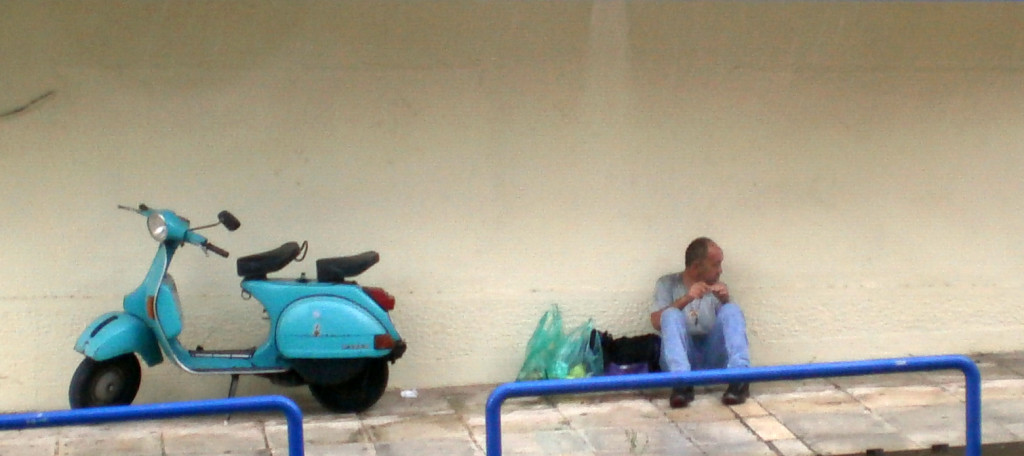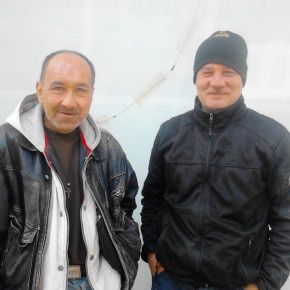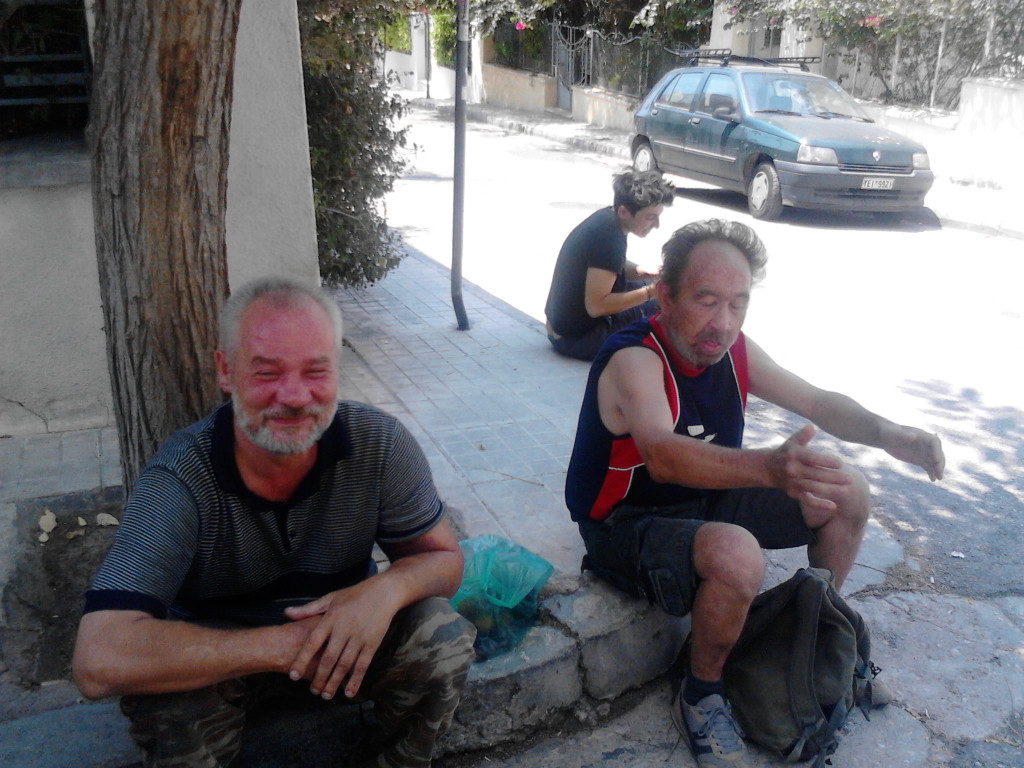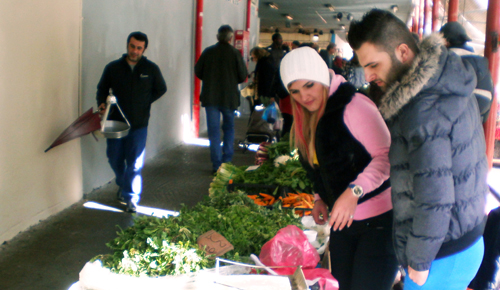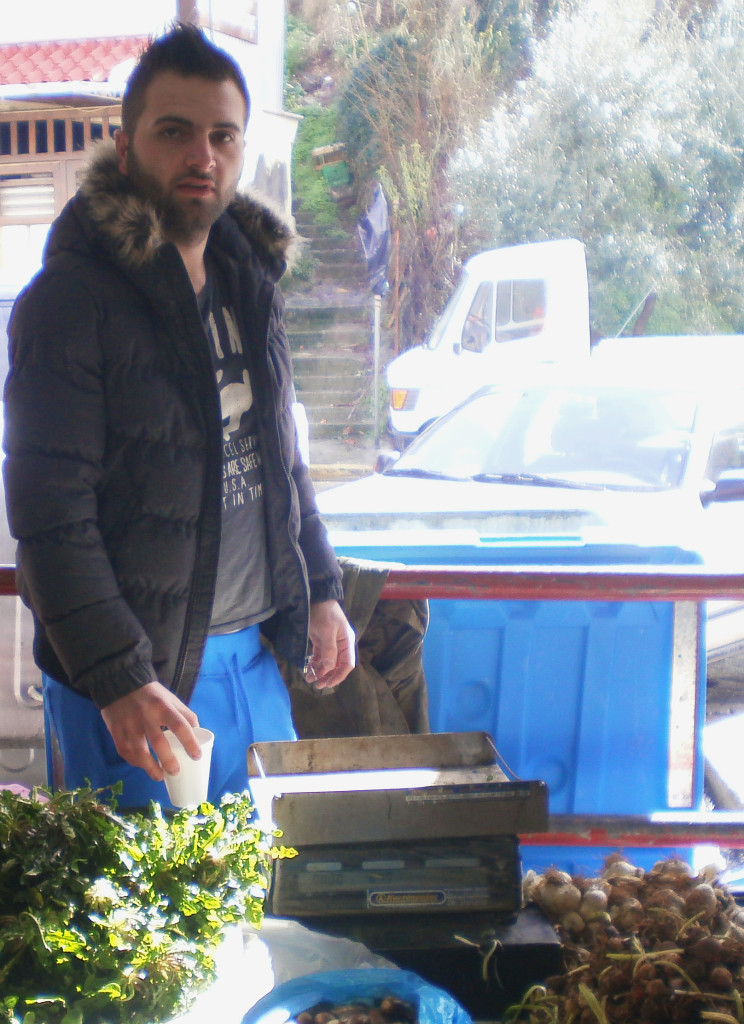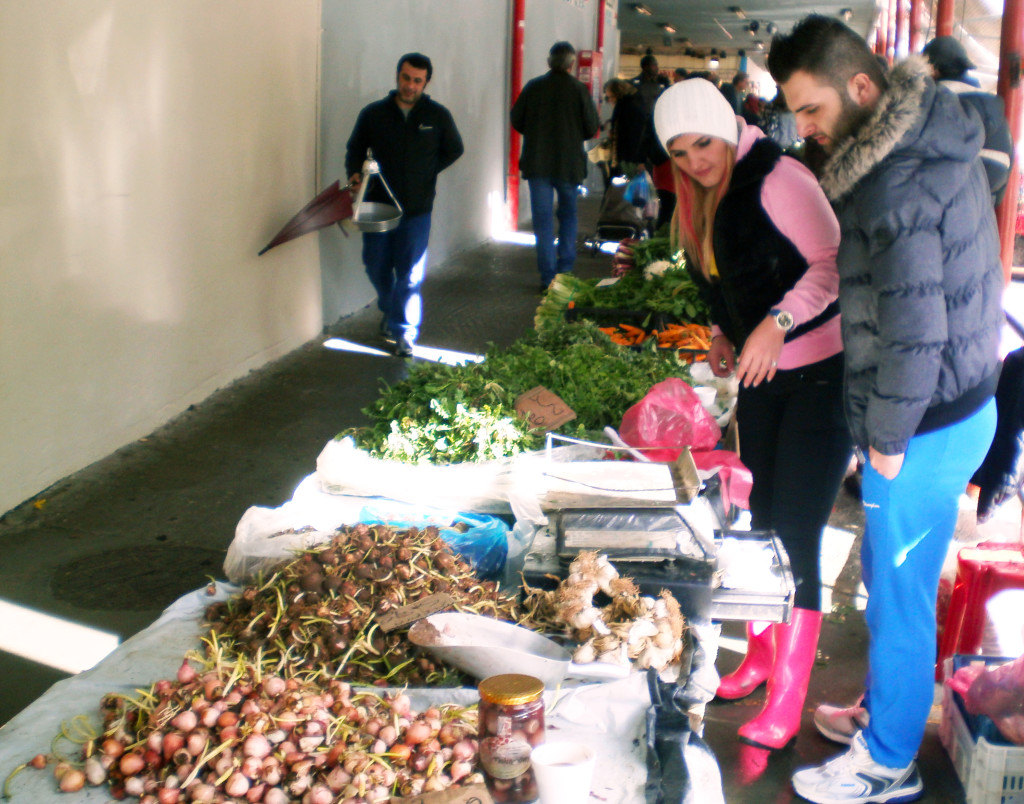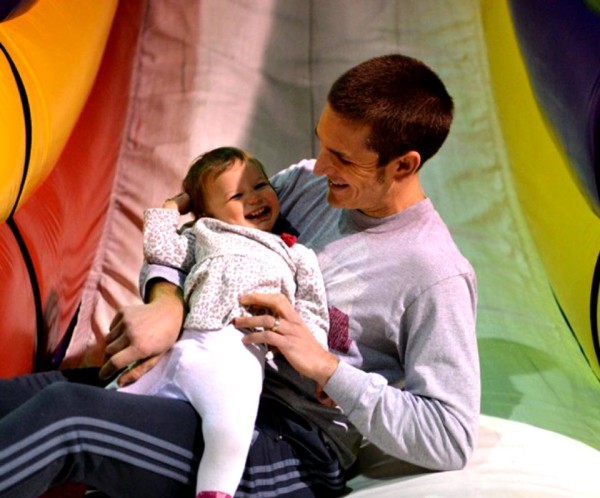
“W
e’re gonna be on this airplane,” R. C. Liley says, showing his two-year-old daughter a pink, two-seater toy plane. Twenty-nine, Liley is tall and fit and towers over Avery, a toddler in a light-green T-shirt with the words “Never Mess.” “We’re gonna start from the ground, and w-o-o-o-o-sh!” he says, mimicking the sound of the jet engines as he lifts the plane higher and higher.
Liley ends his demonstration. “Okay, Avery, that’s an airplane,” he says. “We’re gonna fly on it—are we gonna be good?”
“Yes,” Avery says, a bit hesitant, her dimples sinking into her cheeks as she smiles.
Liley is a stay-at-home dad. He looks after Avery when his wife Kelley, Avery’s mother, is working at the finance department of a large corporation. Unlike some stay-at-home dads, who feel awkward about taking on a role that many people still consider feminine, Liley is open about being the primary caretaker for his child—so open, in fact, that he regularly shares his experiences on his blog.
Since 1989, the number of stay-at-home dads, or SAHDs, has nearly doubled, according to the Pew Research Center. About two million fathers in America now care for children younger than eighteen while not working outside the home. They account for 16 percent of at-home parents. Likewise, across Europe and even in more traditional cultures around the world, men who take on this role are increasingly visible.
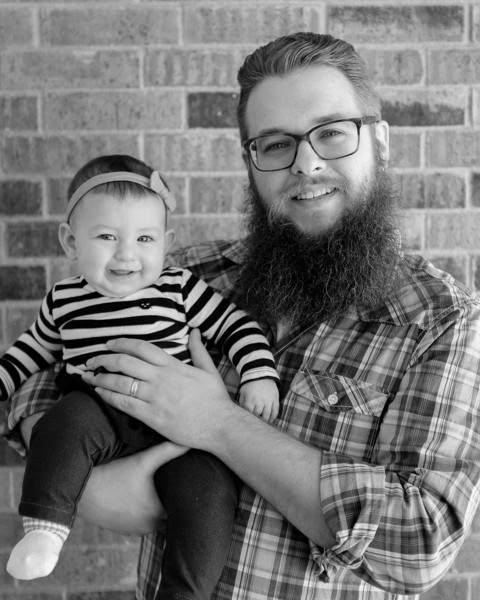
In the United States, many men who lost their jobs during the recession wound up staying at home with their kids, at least temporarily. For a growing number of men, however, their choice to become stay-at-home dads is actually that—a choice. Surveys support this view that fathers’ attitudes are changing. For example, just 5 percent of stay-at-home dads in 1989 said that the main reason they were home was to care for their home or family; today, 21 percent do.
These fathers have little in common with Jack Butler, the hapless stay-at-home dad played by Michael Keaton in the 1983 comedy Mr. Mom—still the cultural reference many people turn to when thinking of men at work at home. Forced to care for his kids after being sacked, Butler seemed bent on wreaking havoc in the house.
Today’s more gender-equal generation of stay-at-home dads shoulder domestic tasks more responsibly. For his part, Liley grew up in an upper-middle-class family in Texas. He studied finance and got a well-paying job as an accountant at a mutual fund. But in 2013, he decided to quit his job and care for Avery. “My wife always made more,” he says. “I was already the one doing the cooking and the rest of the household.” Staying home with Avery wasn’t something Liley felt forced into. Quite the contrary, he says—“I was counting down the days till I became a SAHD.”
But as much as attitudes about parenting have changed, stay-at-home dads still find themselves facing skepticism and derision, often subtle in form—the ways that stay-at-home moms steer clear of them at the playground, or the media portrays them as clueless and dumb, or friends and family drop hints that what they’re doing is strange.
“Being the man, it sounded crazy for me to quit my job,” says Matt Dudzinski, thirty-six, a former interior designer for an architectural firm in Detroit who now cares for his two daughters, six and three. He and his wife Aya, a trim engineer for an automotive company, had each thought—to themselves—that having Dad at home would work best for them as a couple. But they avoided talking about it. “We were both worried about being judged—her, for wanting to keep her career while being a mother, and me, for not being a breadwinning man.”
Then Dudzinski was laid off. “The arrangement we both knew we wanted, but were afraid to voice, was decided for us.”
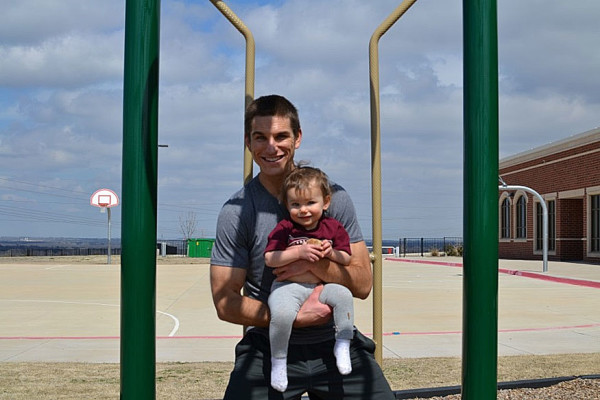
In certain parts of the world, men (and women) have an easier time staying at home with their kids. For more than two decades, Canada has granted paid leave to fathers who want to be the primary caretakers of their children. In Japan, a country known for its stark gender divide, the law nonetheless requires employers to give their workers—men and women—time off after the birth of a child. In Sweden, one of the most SAHD-friendly countries, both moms and dads can receive government benefits for up to 480 days if they choose to care for their kids at home.
In America and Australia, there is much less in the way of support. Stay-at-home dads have fewer role models or resources to help them, and when government policies do exist to assist families with young children, they tend to treat these men as second-class parents.
Regardless of what their governments do, however, broad economic and cultural shifts seem to be pushing new dads in all these countries to consider what their own fathers would not.
In the United States, the number of stay-at-home dads peaked at 2.2 million in 2010, but then fell slightly once the economy picked up. Clearly, household decisions about who does what have much to do with the state of a family’s finances: in an uncertain economy, men who wouldn’t otherwise stay home are willing to do so when it seems practical. The massive unemployment of the economic downturn is only part of this story, though. Years after the official end of the recession, the typical American household makes less income, adjusted for inflation, than it did in 2007. Having a parent stay at home sometimes makes more sense than paying for a nanny or daycare—and now that women often make more than their partners, the sensible choice in some cases is for the dad, not the mom, to stay home.
Changing values may also be drawing men out of the workplace and into the home. Today, parenting is seen as both the cause and solution to a wide variety of social ills, says writer and sociologist Tiffany Jenkins, while “work is not as important as it used to be for one’s identity and purpose.” As work inside the home becomes, as Jenkins puts it, “professionalized,” more men may think of it a worthy life calling.
In turn, some of today’s new fathers may be reacting to what they think their own dads got wrong. GenXers and millennials, who grew up at a time when dual-income families were the norm, are already more comfortable with the idea of a woman breadwinner. Like every generation before them, they are finding their own ways to rebel—and in the case of the stay-at-home dads among them, this may involve rejecting their fathers’ workaholic schedules, which left little time for children. “I think a lot of people from my generation grew up without dads, or without good dads, and we are trying to change that—showing that we can be great dads,” says Josh Hardt, twenty-eight, a stay-at-home dad in Durham, North Carolina.
For his part, Hardt never felt close to his biological father, he says. After he moved away from home, he did find a fatherly role model in his stepdad, who was a more hands-on parent. Now that he’s a father himself, Hardt works on a freelance basis as a filmmaker but focuses on caring for his two-year-old daughter. His wife works as a retail store manager and provides most of the family’s income.
Hardt enjoys his role at home. The idea of a woman supporting a man financially isn’t that far a cultural leap for someone young like him, but Hardt knows that others—especially the older generation—think otherwise. “They come from a different time, so I understand why it’s hard to understand,” he says.
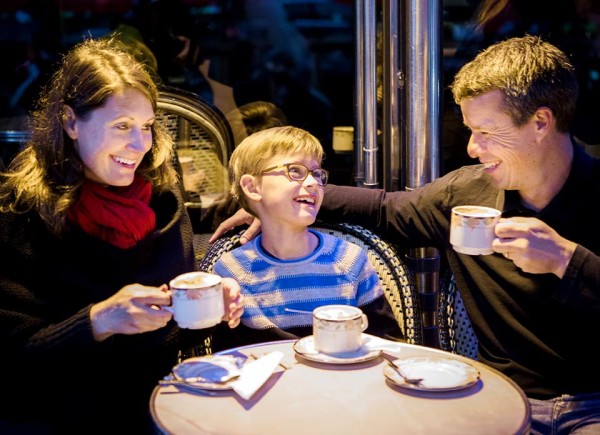
If capable stay-at-home dads like Hardt are growing in numbers, though, you wouldn’t know it by watching TV. From Fred Flintstone to Homer Simpson, from Al Bundy to Alan Harper, the most popular on-screen dads of the past several decades have been roundly portrayed as doofuses. And the stay-at-home dads among them have not been spared the low expectations that both men and women have concerning male parenting skills. Even when TV dads are praised for being practically minded problem solvers in the home, the compliments are woefully backhanded—in a controversial 2011 detergent commercial, for instance, the savvy stay-at-home dad has to qualify his competence by calling himself a “dad-mom.”
Paul Schwartz knows the stereotype of the bumbling dad well: he was asked to play one on TV. Schwartz, a forty-two-year-old former labor lawyer, has gained a large following on his blog, which chronicles his adventures as a stay-at-home dad in Paris. A few months ago, a cable channel asked him if he wanted to be in a reality show they were developing about stay-at-home dads. The idea was interesting, but in the end Schwartz backed out. “They insisted that we act like morons,” he says.
Perhaps the negative portrayals of stay-at-home dads in the media aren’t so surprising, though, given how prevalent these stereotypes are in the public at large. It needs to be stressed that perceptions of stay-at-home dads tend to be much more hostile outside of America and Europe: in China, SAHDs often hide their status, fearing humiliation, and in many Muslim nations, such a role for men is considered religiously subversive. Nevertheless, large numbers of people in rich Western countries continue to have a lopsided view of who should be taking care of the kids. In a 2013 Pew survey, for instance, 51 percent of Americans said that children are better off if their mothers are home, while only 8 percent said the same of fathers.
Stay-at-home dads are regularly reminded that other people see them as, at best, an oddity. “I usually get one of two responses when people ask what I do for a living,” Dudzinski, the stay-at-home dad from Detroit, writes in an email. “‘Oh, that’s great’ (with a straight face, changes subject and stops talking to me). Or: ‘That’s awesome! If I didn’t have to work, I’d totally stay home all day!’ (assuming I watch TV and order pizza every day).”
Schwartz has stayed at home with his son Malcolm for a decade, but he still gets his share of clueless and patronizing questions from people he meets—inquiries along the lines of, “How does it work? Do you do laundry, too?” “Most are a bit shocked to learn that I have been a stay-at-home parent for all of Malcolm’s life,” Schwartz says. At PTA events, parent gatherings, and playdates, Schwartz is still frequently the only man in the room. “I don’t have a problem with it, although it occasionally means that my sense of humor doesn’t go over well.”
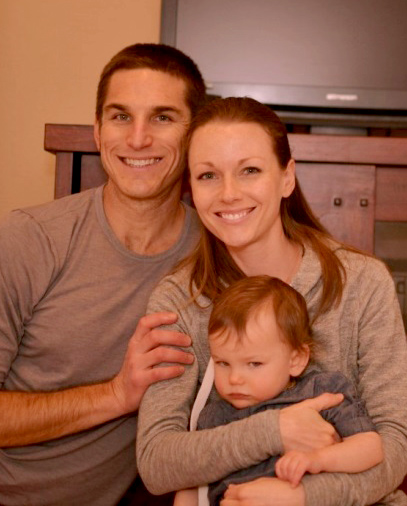
Schwartz and his family used to live in San Francisco. After Malcolm was born, he quit his job as a lawyer to take care of him. Then, in 2013, an international software company offered his wife Amy an executive position in Paris. She decided to take the job, and the family relocated overseas. Once in Paris, Schwartz immediately set to work establishing a new support network for Malcolm. He reached out to a local moms’ group about joining—only to learn that he, as a man, wasn’t invited.
When he did meet other stay-at-home parents, their interactions were “a bit weird,” he says. At a coffee for parents new to Paris, the group talked for half an hour about breast feeding, vaginal births versus C-sections, and similar topics. “You’d think that sitting around with a bunch of women talking about their intimate body parts would be terribly exciting, but to tell you the truth, I was bored.” To find more parents he could relate to, Schwartz eventually turned to the SAHD networks that have sprouted up around the globe in recent years. The people he’s met in this virtually connected community have been an important source of support, he says.
There is some irony to the fact that stay-at-home-moms can be some of the least understanding people whom SAHDs encounter. One obvious reason for the distance these women keep is apprehensiveness about sexual tensions—fears, for instance, that SAHDs must get lonely and want to hit on them. “Women are afraid they are forming a relationship that’s more [than] a friendship, so they don’t want any part of that,’” says Michelle P. Maidenberg, president and clinical director of Westchester Group Works, a community center in New York focused on group therapy.
The awkwardness, however, may have to do with more than just unwanted sexual attention. Women may see stay-at-home dads as threats—interlopers in a domestic sphere they thought was theirs alone, Maidenberg says. Or, they may see the SAHD as a sign of their own inferiority. The modern woman faces a daunting work-life balancing act: the need to juggle a thriving career and a thriving family. Meeting a stay-at-home dad, then, might raise some unsettling questions about how others have succeeded where she has failed—questions like, “Who is the high-powered female married to this man? How incredibly successful and rich is she that she has her husband at home?”
There is a joke going around his circles, Schwartz says. “The new status symbols for women are driving a hybrid car, and having a stay-at-home-dad for a spouse.”
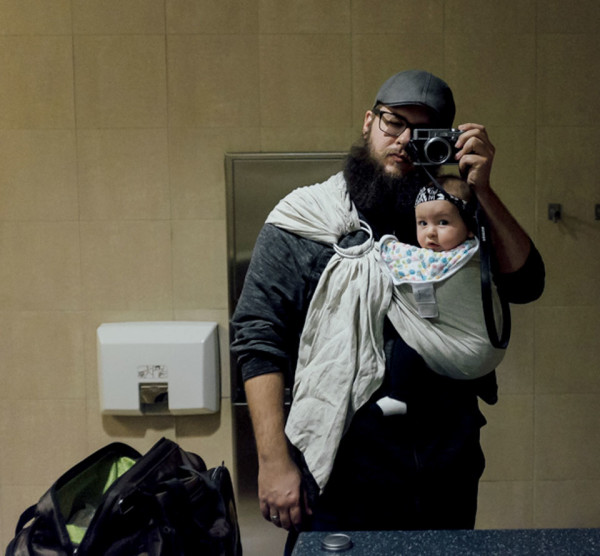
Among other things, skepticism about stay-at-home dads is rooted in the widespread view that women are just more caring and empathetic than men, and thus better suited to be caregivers. Science backs that view up—though the degree to which it does, and the degree to which any gender difference is due to nature or nurture, are hotly contested.
Women tend to have higher levels of activity in their mirror neurons, brain cells linked to the workings of empathy. But scientists disagree whether empathy is determined by mirror neurons alone. Furthermore, research finds that these mirrors neurons can be altered through simple and brief training tasks. This suggests that empathy is not impervious to the power of culture, and that the gender differences we see may be due, at least in part, to the way children are socialized, not their innate traits. Indeed, studies of infant boys and girls find that boys are equally sensitive and attentive to other people at this early stage in their development.
What happens, then, when men care for their kids at home? Not surprisingly, studies find that it is a good idea for fathers to get involved, generally speaking, in their children’s lives. For example, one British study gathered a sample of 11,000 adults and asked their mothers how often the children’s fathers had read to them, gone out with them, and otherwise spent time with them during their childhoods. The researchers found that, on average, adults whose fathers had been more involved when they were growing up had higher IQs, were more sociable, and enjoyed a healthier sense of self. Perhaps being raised by the most involved kind of father—a stay-at-home dad—can lead to even more benefits for children’s sense of self-worth.
That is a hypothesis that researchers are evaluating, says Dr. Michael B. Donner, president of the San Francisco Center for Psychoanalysis. Another is that men who care for their kids have personality traits that distinguish them from other men. For instance, there is anecdotal evidence that stay-at-home dads are more connected to, and comfortable with, their feminine side, Donner says. (For their part, many stay-at-home dads delight in the idea they are different: they want to show other people—especially their own children—that masculinity is also about compassion and nurturing, they told me.)
As interesting as this research can be, Donner is quick to add that the debate over gender differences can obscure the larger point: children just need supportive parents. “It’s not about gender or testosterone levels, or who nurtures or challenges. It is about feeling safe and secure in your parents’ hands, and these properties have no gender.” The bottom line is that children raised in nurturing environments exude confidence when they become adults, he says. “Two can play at that game, moms or dads.”
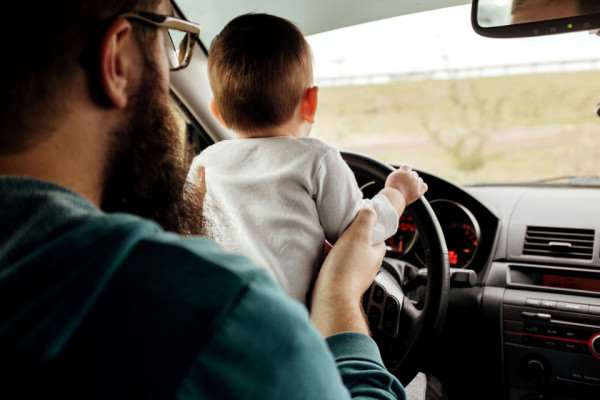
Dustin Davis has spent the last few years proving just how nurturing a dad can be. In 2013, Davis was laid off from his job as a designer. When his daughter Adeline was born two years ago, he decided he would use the opportunity to become—as he puts it on his personal blog—a “work-from-home dad.” During the day, his wife Jessica works as a designer at a marketing agency, while Davis cares for Adeline in their St. Louis home.
Davis, thirty-three, is as manly as you can get, as evidenced by his impressive ZZ Top beard. But like any stay-at-home parent, he revels in the milestones he’s been able to see first-hand—the other day, it was the five steps Adeline took, in a moment of particularly good coordination. Like many stay-at-home dads (and for that matter, like many stay-at-home moms), he has a career he continues to pursue. But now he is a freelancer working part-time from home, and his chief priority, he says, is Adeline.
“While I cannot breastfeed a child, I can do everything else a woman does. I can be nurturing and loving. I can raise a child.”
Stav Dimitrοpoulos Stav Dimitropoulos is a writer and journalist whose work has appeared in major US, UK, Australian, and Canadian outlets. A native of Greece, she received the Athens Medal of Honor at the age of seventeen and went on to receive a master's degree. She experimented with journalism along the way, and has been writing ever since. Facebook | Twitter: @TheyCallMeStav
- Follow us on Twitter: @inthefray
- Comment on stories or like us on Facebook
- Subscribe to our free email newsletter
- Send us your writing, photography, or artwork
- Republish our Creative Commons-licensed content

